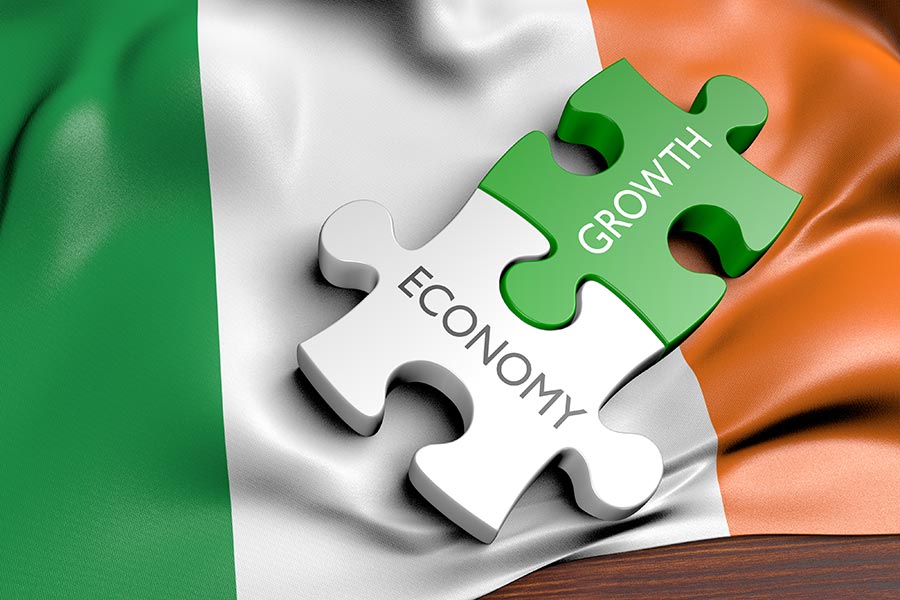Business in the services sector accelerated in November as prices charged by services providers rose at the slowest rate for three-and-a-half years, according to the latest AIB Ireland services purchasing managers' index (PMI).
Demand conditions improved and employment rose at a faster pace, further indicating receding inflationary pressures, but jobs growth remained weaker than the long-run survey average due to a slightly less optimistic 12-month outlook.
The seasonally adjusted AIB Ireland services business activity index rose sharply to 58.3 in November from 53.8 in October, the fastest rate of growth since April and the largest monthly increase in the index (4.5 points) since February 2022.
Readings above 50.0 indicate an overall increase compared to the previous month.
"The AIB Irish Services PMI for November shows a very robust performance in the sector. The PMI rose to 58.3 from 53.8 in October, indicating a sharp acceleration in the pace of growth," said John Fahey, senior economist at AIB.
"Indeed, the November reading is the fastest pace of expansion recorded by the services sector since April 2023. The rate of growth in the Irish services sector was faster than the Eurozone, UK and US flash PMIs at 49.2, 50.0 and 57.0 respectively."
All four sub-sectors posted faster growth of business activity led by financial services (60.1) and followed by technology, media & telecoms (59.3), business services (56.7), and transport, tourism & leisure (56.4), which once again posted the slowest rate of business activity expansion, albeit the strongest for a year-and-a-half.
The improvement in demand conditions was driven by the volume of new work received by service providers increasing at the fastest rate since March.
Demand was strongest in financial services and transport, tourism & leisure. New business from international clients rose at the fastest rate for eight months, with a notable improvement in transport, tourism & leisure.
Despite easing inflation, cost pressures remain strong, and the seasonally adjusted input prices index was well above the 50.0 no-change mark, driven by wages and fuel.
However, input cost inflation has stabilised at the among the lowest levels for nearly four years, leading service providers to raise their charges more slowly in November.
The rate of charge inflation was the weakest since April 2021, albeit still above the long-run average.
Improved new order intakes led to faster job creation following a down month in October, but job creation remained weaker than the long-run survey trend and the 2024 average so far.
By sub-sector, the strongest pace of hiring was seen in technology, media & telecoms. At the other end of the scale, financial services posted only a slight increase in workforce numbers.
Outstanding business continued to rise, but the increase was the weakest in the current 10-month sequence of expansion, partly reflecting a decline in business services.
Service providers remained optimistic, on balance, of growth over the next 12 months. Around four in ten companies expected an increase in business activity while only 8% predicted a decline.

Overall confidence was, however, among the weakest of the past two years and below the long-run survey average.
"In terms of the outlook, while service sector firms remained optimistic on growth prospects over the coming 12 months, the future activity index eased for the third time in four months and is now at its second-lowest level since early 2023," said Fahey.
(Pic: Getty Images)











